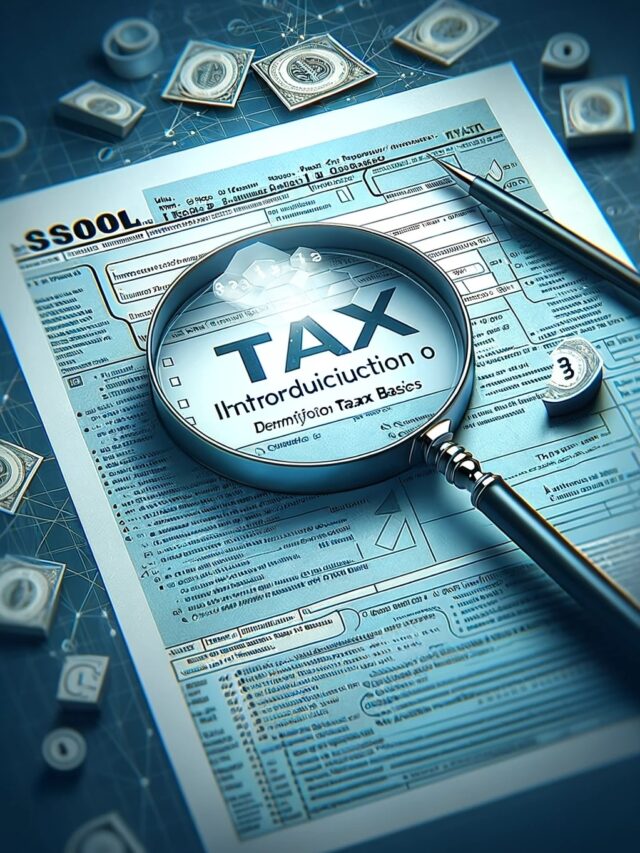Key Takeaway Box
- Housing benefits are programs that help Canadians afford, improve, or access housing.
- Some of the housing benefits available in Canada are: GST/HST new housing rebate, home buyers’ amount, first home savings account, first-time home buyer incentive, Canada greener homes initiative, and funding for Indigenous housing.
- These benefits can provide tax credits, grants, loans, or subsidies for eligible homeowners, renters, or buyers.
- To learn more about each benefit, its eligibility criteria, and how to apply, visit the Canada.ca website or contact the relevant agency.
Introduction
Housing is one of the most essential and expensive needs for Canadians. Whether you are renting, buying, or owning a home, you may face challenges such as affordability, accessibility, or energy efficiency. Fortunately, the government of Canada offers various housing benefits to help you overcome these challenges and improve your quality of life. In this article, we will explore some of the housing benefits that are available in Canada, and how they can help you save money, reduce your environmental impact, and access suitable housing.
GST/HST New Rebate Housing Benefits
The GST/HST new housing rebate is a program that allows you to recover some of the GST or the federal part of the HST paid for a new or substantially renovated house that is for use as your or your relation’s primary place of residence⁴⁵. The rebate is worth 36% of the GST or federal part of the HST paid, up to a maximum of $6,300⁶⁷. The rebate is valid on homes that have a fair market value of $350,000 or less. If you buy a home priced above this amount but still less than $450,000, you may be eligible for a partial rebate⁶⁷.
To apply for the GST/HST new housing rebate, you must meet the following conditions⁴⁵:
- You purchased new or substantially renovated housing from a builder, including housing on leased land (if the lease is for at least 20 years or gives you the option to buy the land).
- You purchased shares in a co-operative housing corporation for the purpose of using a unit in a new or substantially renovated cooperative housing complex.
- You constructed or substantially renovated your own home or hired someone else to do so, if the fair market value of the house when the construction is substantially completed is less than $450,000.
- You purchased a new or substantially renovated mobile home or floating home.
- You are an individual who is a resident of Canada at the time the rebate application is filed.
- You or your relation intend to use the house as the primary place of residence.
Depending on whether you bought the house from a builder or built it yourself, you may need to fill out different forms and provide different documents to claim the rebate. You can find more information and instructions on how to apply on the Canada.ca website⁴⁵.
Home Buyers’ Amount
The home buyers’ amount is a non-refundable tax credit worth $1,500 that you can claim if you are a first-time home buyer or a person with a disability who purchased a home during the year[^20^]. The credit is calculated by multiplying the lowest personal income tax rate for the year (15% in 2023) by $10,000. For example, if you bought a home in 2023, you can claim a credit of $1,500 ($10,000 x 15%) on your 2023 income tax and benefit return.
To qualify for the home buyers’ amount, you must meet the following criteria[^20^]:
- You or your spouse or common-law partner acquired a qualifying home.
- You did not live in another home owned by you or your spouse or common-law partner in the year of acquisition or in any of the four preceding years (first-time home buyer).
- You are a person with a disability or are buying the home for a related person with a disability.
A qualifying home is a housing unit located in Canada that you or your relation intend to occupy as the principal place of residence no later than one year after buying it. It can be an existing or a newly constructed home, and can be a single, semi-detached, townhouse, mobile home, condominium, or apartment unit[^20^].
To claim the home buyers’ amount, you must enter the amount of $10,000 on line 31270 of your income tax and benefit return. You must also complete Schedule 1, Federal Tax, and attach it to your return. You do not need to submit any supporting documents with your return, but you should keep them in case the Canada Revenue Agency asks to see them later[^20^].
First Home Savings Account
The first home savings account (FHSA) is a new registered plan that allows you to save up to $40,000 for your first home tax-free¹⁴. The FHSA combines the best features of the RRSP and the TFSA: you can deduct your contributions from your income tax, and you can withdraw your contributions and earnings tax-free when you buy or build a qualifying first home. You can also transfer funds from your RRSP to your FHSA without paying tax, subject to the FHSA contribution limits.
To open an FHSA, you must meet the following requirements¹⁴:
- You are a resident of Canada and at least 18 years of age.
- You have a valid social insurance number (SIN).
- You are a first-time home buyer, which means you do not live in a qualifying home as your principal residence, which is owned, jointly or otherwise, either by you or your spouse or common-law partner in the calendar year in which the account is opened or in any of the preceding four calendar years.
You can contribute up to $8,000 per year to your FHSA, up to a lifetime limit of $40,000. You can carry forward any unused contribution room to future years. You can claim a deduction for your FHSA contributions in the year you make them or in a later year, depending on your tax situation. You can open an FHSA with any financial institution that offers registered plans, such as banks, credit unions, or trust companies¹⁴.
You can withdraw funds from your FHSA at any time, but you must use them to buy or build a qualifying first home within 15 years of opening the account. A qualifying first home is a housing unit located in Canada that you or your relation intend to occupy as the principal place of residence no later than one year after buying or building it. It can be an existing or a newly constructed home, and can be a single, semi-detached, townhouse, mobile home, condominium, or apartment unit¹⁴.
If you do not use your FHSA funds for a qualifying first home, you must pay tax on the amount withdrawn, plus an additional 10% penalty. You must also close your FHSA and report the closing balance as income in the year you close it. You can avoid the penalty and the income inclusion if you transfer the funds to your RRSP, subject to your RRSP contribution room¹⁴.
IMPORTANT LINKS:
- What Expenses Can You Deduct from Your Rental Income? (Updated 2024)
- How to Get Your EITC Refund Faster in 2024
- CPP, RRSP, TFSA, FHSA, AMT and OAS Changes: What You Need to Know for 2024
- What Happens to Your CPP and OAS Benefits When Your Spouse Dies?
- How to Get the Grocery Rebate Payments in Canada in January 2024
First-Time Home Buyer Incentive
The first-time home buyer incentive is a program that helps you reduce your monthly mortgage payments by providing you with a shared-equity mortgage⁸. A shared-equity mortgage is a type of loan where the government shares in the upside and downside of the property value. In other words, the government will lend you a portion of the home’s purchase price in exchange for a share of the home’s future appreciation or depreciation.
To be eligible for the first-time home buyer incentive, you must meet the following conditions⁸:
- You are a first-time home buyer, which means you have never purchased a home before or you did not occupy a home that you or your current spouse or common-law partner owned in the last four years.
- You have a minimum down payment of 5% of the purchase price of the home, which must come from your own resources and not be borrowed.
- Your household income does not exceed $150,000.
- Your total borrowing amount does not exceed four times your household income.
- You are a Canadian citizen, permanent resident, or non-permanent resident who is legally authorized to work in Canada.
- You intend to live in the home as your primary residence.
The amount of the incentive you can receive depends on the type of home you buy and whether you have a minimum 20% down payment. The incentive is either 5% or 10% of the home’s purchase price. For existing homes, the incentive is 5%. For new construction homes, the incentive is 5% or 10%, depending on your down payment. The incentive is not interest-bearing and does not require ongoing payments⁸.
You can repay the incentive at any time without a pre-payment penalty, or you can repay it when you sell the home or after 25 years, whichever comes first. The repayment amount is based on the property’s fair market value at the time of repayment. If the home value has increased, you will pay back more than you borrowed. If the home value has decreased, you will pay back less than you borrowed⁸.
To apply for the first-time home buyer incentive, you must contact a participating lender, such as a bank, credit union, or mortgage broker. The lender will assess your eligibility, help you with the application process, and provide you with the incentive funds at the closing of your home purchase. You can find more information and instructions on how to apply on the Canada.ca website.
Canada Greener Homes Initiative
The Canada greener homes initiative is a program that helps you make your home more energy-efficient and reduce your greenhouse gas emissions by providing you with grants of up to $5,000 and free expert advice. The program covers various types of retrofits, such as insulation, windows, doors, heating, cooling, ventilation, renewable energy, and more.
To participate in the Canada greener homes initiative, you must follow these steps:
- Register online and book your pre-retrofit evaluation with a certified energy advisor.
- Receive your personalized report with recommendations for energy-efficient upgrades and potential grant amounts.
- Complete at least one retrofit that is both eligible and recommended by your energy advisor.
- Book your post-retrofit evaluation and provide your receipts for the work done.
- Receive your reimbursement for the grant amount.
To be eligible for the Canada greener homes initiative, you must meet the following criteria:
- You are a homeowner of a primary residence that is at least six months old and has a maximum of three units.
- You have the required documents to prove homeownership and identity.
- You have not received a grant from the program for the same property before.
- You agree to participate in surveys and share your energy consumption data.
You can find more information and register for the program on the Canada.ca website.
Funding for Indigenous Housing
Funding for Indigenous housing is a program that supports the construction, renovation, and maintenance of affordable and adequate housing for Indigenous peoples living on and off reserve, in rural and urban areas. The program is delivered by various partners, such as the Canada Mortgage and Housing Corporation (CMHC), Indigenous Services Canada (ISC), and the First Nations Housing and Infrastructure Council of BC (HICBC).
Some of the funding options available for Indigenous housing are:
- The On-Reserve Non-Profit Housing Program (Section 95), which provides subsidies for the construction, purchase, and rehabilitation of rental housing units on reserve lands.
- The First Nations Market Housing Fund, which provides access to market-based loans for homeownership, rental, or renovation on reserve lands and settlement lands.
- The On-Reserve Housing Loan Guarantee Program (Section 10), which provides loan guarantees for homeownership on reserve lands.
- The Shelter Enhancement Program, which provides funding for the repair, rehabilitation, and improvement of existing shelters for women, children, and youth fleeing violence.
- The Rapid Housing Initiative, which provides funding for the immediate creation of new affordable housing units for vulnerable populations, including Indigenous peoples.
- The National Housing Co-Investment Fund, which provides low-cost loans and financial contributions for the development and repair of mixed-income, mixed-tenure, and mixed-use housing projects.
- The Rental Construction Financing Initiative, which provides low-cost loans for the construction of rental housing projects that are affordable, accessible, and energy-efficient.
To apply for funding for Indigenous housing, you must contact the relevant partner agency and follow their application process and eligibility criteria. You can find more information and links to the partner agencies on the Canada.ca website.
Conclusion
Housing benefits are programs that help Canadians afford, improve, or access housing. They can provide tax credits, grants, loans, or subsidies for eligible homeowners, renters, or buyers. Some of the housing benefits available in Canada are: GST/HST new housing rebate, home buyers’ amount, first home savings account, first-time home buyer incentive, Canada greener homes initiative, and funding for Indigenous housing. These benefits can help you save money, reduce your environmental impact, and access suitable housing. To learn more about each benefit, its eligibility criteria, and how to apply, visit the Canada.ca website or contact the relevant agency. Thank you for reading this article, and remember to keep hustling!
Source: (1) GST/HST New Housing Rebate – Canada.ca. https://www.canada.ca/en/revenue-agency/services/forms-publications/publications/rc4028/gst-hst-new-housing-rebate.html. (2) GST/HST new housing rebate – Canada.ca. https://www.canada.ca/en/revenue-agency/services/tax/businesses/topics/gst-hst-businesses/gst-hst-rebates/new-housing-rebate.html.
GST/HST new housing rebate – Canada.ca : GST/HST new housing rebate – Canada.ca : GST/HST new housing rebate calculator – Canada.ca : GST/HST new housing rebate amount – Canada.ca : First-Time Home Buyer Incentive – Canada.ca : Canada Greener Homes Initiative – Canada.ca : Funding for Indigenous housing – Canada.ca : First Home Savings Account – Canada.ca : Home buyers’ amount – Canada.ca




